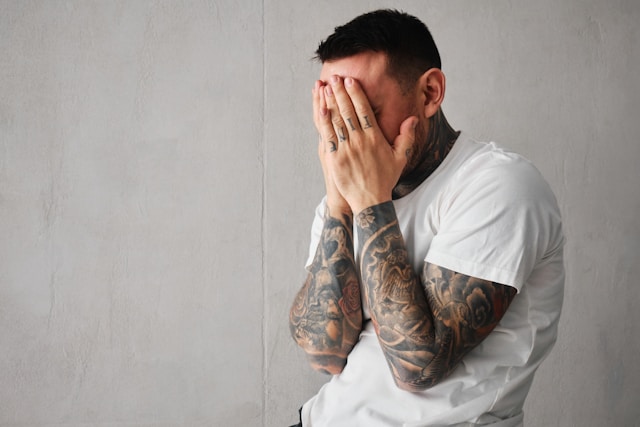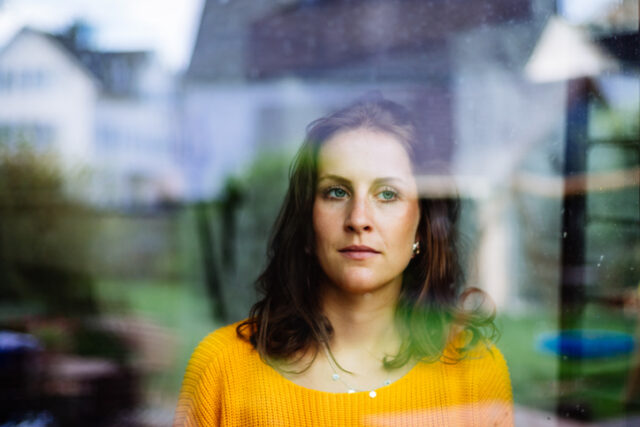Growing up feeling rejected, whether it was by parents, peers, or anyone else, can really stick with you.

Those feelings don’t just disappear when you hit adulthood – they fundamentally change the way you see yourself, and how you connect with people around you. If you’ve ever felt like you’re carrying the weight of all that old baggage, it might help to recognise some of these signs. It’s not always easy, but understanding these patterns can be the first step in breaking their hold over you so that you can finally move forward.
1. You don’t trust anyone.

When you’ve been let down before, trusting anyone – even the people you’re closest to – becomes a bit of a challenge. There’s always that little voice in your head saying, “They’ll leave eventually,” or “What if they let me down?” This isn’t just about expecting the worst, it’s about keeping your guard up to protect yourself from more hurt. But that kind of thinking can make it difficult to truly open up and be vulnerable with people.
2. You need constant external validation.

If you grew up feeling overlooked, you might find yourself constantly seeking approval from everyone around you. Whether it’s your partner, your friends, or your boss, you crave that reassurance. Compliments feel like a lifeline, and without them, you might feel empty or unsure of your worth. It’s exhausting trying to prove you matter, and yet, you can’t seem to stop.
3. You apologise way too much.

This one’s a biggie. If you’ve felt rejected in the past, you might have a habit of apologising for things that don’t even require an apology. Maybe it’s when you’re late for a meeting or when you accidentally bump into someone. You feel like you’re always in danger of upsetting someone, so you apologise to keep the peace. Even though you don’t always need to apologise, it feels like you’re preventing a rejection before it happens.
4. You avoid conflict because it terrifies you.

Conflict is scary when you’ve been rejected. You might suppress your feelings, go along with things you don’t agree with, or pretend everything is fine just to avoid an argument. The thought of someone getting upset or walking away because of a disagreement makes you anxious. So, instead of speaking your mind, you bottle everything up, hoping it’ll just go away.
5. You have zero clue how to set boundaries.

Growing up feeling like your needs didn’t matter can make it really hard to say “no” as an adult. You might be terrified that if you set limits, people will stop liking you or won’t want to be around you. So, you end up saying “yes” to everything and overloading yourself, even though it drains you. You struggle with putting yourself first, even when you know you should.
6. You often feel like an outsider.

Whether you’re at work, hanging out with friends, or even with your own family, you can’t shake the feeling that you don’t quite fit in. It’s like there’s an invisible wall between you and everyone else, and no matter how hard you try, you still feel disconnected. That sense of not belonging can leave you isolated, even when people are trying to include you.
7. The fear of being abandoned is always with you.

The thought that people might leave you – whether it’s a friend, partner, or family member – can be terrifying. If someone doesn’t reply to your message straight away, your mind goes into overdrive: “What if they’re mad at me?” or “Are they starting to distance themselves?” You cling a bit too tightly, or you push people away first, all because you’re scared they’ll leave you before you can deal with it.
8. You ruin relationships before you even start.

Fear of being rejected means you might sabotage good things before they get too close. You might pick fights out of nowhere or end things too early because you’re expecting it to go wrong. It’s like you’re trying to avoid the pain of being rejected, so you end things on your own terms. But it’s a tough cycle, and the more you do it, the harder it gets to build strong connections.
9. You don’t believe you’re worthy of good things.

If rejection has been a constant, it can start to feel like you don’t deserve love or success. You downplay your achievements, reject compliments, or feel like you’re just lucky to have what you do. You convince yourself that happiness or good things are for “other people,” not you. Thinking like this stops you from embracing your own potential.
10. You read too much into small signs.

If someone doesn’t text back right away, or if the tone of their voice changes, you start second-guessing everything. That small sign of “maybe they’re upset with me” spirals into a full-on internal meltdown. You start looking for any excuse to prove you’re being rejected again, even when it’s not true.
11. You have a mean perfectionist streak.

The fear of rejection can drive you to aim for perfection in everything. If you’re not perfect, you might feel unworthy of acceptance or love. You set impossibly high standards for yourself, and when you don’t meet them, it only fuels your fear of being rejected. The cycle of perfectionism can lead to burnout and leave you feeling like you’re never “enough.”
12. You pull away when things get hard.

Rather than risk rejection by reaching out for support, you might retreat into yourself when things get tough. You’re afraid that if you ask for help, you’ll burden people or be judged. All that isolation just adds to the weight you’re already carrying, and makes it harder to break the cycle of loneliness.
13. You beat yourself up over the slightest mistake.

Rejection leaves deep emotional scars, and you tend to internalise those feelings of inadequacy. A minor mistake might lead you to call yourself names, or feel like you’re worthless. You can’t help but believe the things you’ve been told in the past, even though they aren’t true.
14. You second-guess yourself constantly.

Making decisions is tough when you’re always worried about making the wrong choice. You ask for advice all the time, and even then, you doubt your own judgement. Every decision feels heavy with the possibility of rejection, and it stops you from trusting yourself.
15. You find it hard to ask for help.

If you’ve grown up feeling like your needs don’t matter, asking for help as an adult can feel like an admission of weakness. You’d rather suffer in silence than risk being rejected for needing assistance. It’s a tough place to be, especially when help could make a world of difference.




